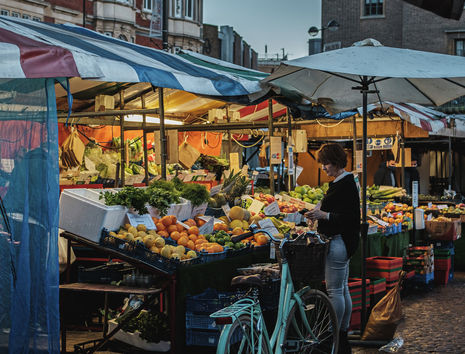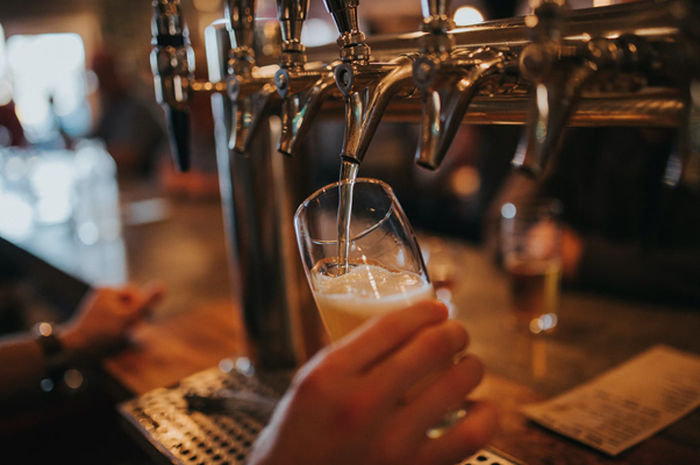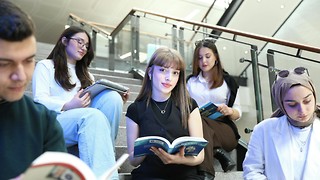Cambridge University and the ‘cost of living’ crisis
As the ‘cost of living’ crisis grips communities across the country, Harvey Brown argues that the University must do more for local people, living in the most unequal city in the UK

The papers are calling it a ‘financial squeeze’. Energy bills are set to rise by an average £693 per year, with more price hikes expected later this year. Petrol is at a record high and food costs are following suit. Commentators are calling it ‘the cost of living crisis’, but this language is deliberately abstract. We need to be clear: this isn’t just people having to cancel their Netflix subscription or weekly takeaway. This is about the price of survival, meeting life’s most basic needs - food, warmth, shelter. To consider these ‘costs’ is to suggest that they are a choice that people can forego.
Nebulous language like ‘squeeze’ makes it easier to forget the crushing material impact this crisis will have on our communities. Nationally, 2.5 million families will be plunged into fuel poverty by the spring. More than 20% of households report already facing a “heat or eat” dilemma. Decades of brutal austerity, combined with the recent end to the £20 Universal Credit uplift, mean that the effects of this ‘squeeze’ will have disproportionately catastrophic effects on those already financially struggling, whose homes are less likely to be well-insulated and who have already borne the brunt of successive financial crises. In this country alone, 14.5 million people were living in poverty before the pandemic.
“Nebulous language like ‘squeeze’ makes it easier to forget the crushing material impact this crisis will have on our communities. ”
Locally, Cambridge will feel the ‘squeeze’ more than most. The most unequal city in the UK - the poorest 20% of our city take home just 2% of the wealth, while 19% is held by the richest 6% of residents. 33,449 - 1 in 6 - children in Cambridgeshire were living in poverty before the pandemic. Foodbank use has increased by 127% in the last 6 years. House prices now sit at a staggering £546,333 compared to the UK average of £271,000. Homelessness is prevalent. Before the pandemic, there was a 10-year difference in life expectancy between the richest and poorest members of our community. This will only get worse. As we all know too well, the ‘cost’ of poverty and austerity is lives.
And yet this is very much a tale of two cities. Cambridge University and its colleges reported consolidated assets of £11.8 billion in 2018. That figure has only increased over the pandemic, local campaigners tell me. The university continues to buy up land in the city, pricing locals out of the market. The university’s 2020 report boasts that ‘the university’s estates strategy is reshaping the city’. And, of course, it is.
Even though it is implicated in the processes creating inequality in the city, the university takes no responsibility for the welfare of the town and offers no support to those suffering on its doorstep. Indeed, the university continues to partner with the corporations profiting from the crisis - BP and Shell are on track to make a combined profit of almost £40bn this year - while phrases like “heat or eat” become increasingly commonplace in our everyday discourse. Wealth and power - in every sense of the word - remain concentrated in the hands of multinational corporations and landowning institutions like the University of Cambridge.
“‘Town/gown divide’ is something that’s thrown around a lot, but it’s a phrase that hides vast power structures rooted in historical violence and enclosure”
‘Town/gown divide’ is something that’s thrown around a lot, but like ‘cost of living’ it’s a phrase that hides vast power structures rooted in historical violence and enclosure. Not only is ‘gown’s’ role in causing and exacerbating inequality in the ‘town’ forgotten - our ability to make reparations is absolved by an imagined barrier between students and townspeople. That we are all residents of the city and subject to the same whims of the university was particularly clear during King’s College’s attempted enclosure of Grantchester Meadows last year, an attempt which was resisted by town and gown standing together to protect public resources. The petition-signing which preserved public access to Grantchester Meadows may seem trivial in comparison with a crisis that threatens to plunge thousands into financial precarity, but the principle is the same: without solidarity between town and gown, the inequality in our city will continue to snowball.
Redistribution starts with us. With the government’s attacks on the welfare state continuing with full venom - and no parliamentary opposition to speak of, addressing the impact of ‘the cost of living crisis’ will not be a passive, top-down process. Though we can - and must - continue to pressure the government to implement a windfall tax on those profiteering from this crisis, and U-turn on its cuts to the welfare state, the priority right now is making sure that no one in our community has to face a ‘heat or eat’ dilemma. This means doing redistribution as well as demanding it - which, in the UK’s richest university, we are well-placed to do. Amazing initiatives already exist to achieve this. Since its foundation last year, for example, Cambridge Solidarity Fund has redistributed over £10,000 of emergency, no-strings cash grants to those who need it. The demand, however, continues to skyrocket. The most recent opening of the fund lasted two minutes before it had to close again. As the ‘cost of living’ becomes increasingly unaffordable, this will only get worse; all the while Cambridge University reports record profits on its endowment. The university has no excuses. It is a part of the community - for better or worse - and being a part of a community means being attuned to the reality and needs of others. Now, more than ever, we have to look after each other.
 News / Local business in trademark battle with Uni over use of ‘Cambridge’17 January 2026
News / Local business in trademark battle with Uni over use of ‘Cambridge’17 January 2026 Comment / The (Dys)functions of student politics at Cambridge19 January 2026
Comment / The (Dys)functions of student politics at Cambridge19 January 2026 News / Cambridge bus strikes continue into new year16 January 2026
News / Cambridge bus strikes continue into new year16 January 2026 Features / Exploring Cambridge’s past, present, and future18 January 2026
Features / Exploring Cambridge’s past, present, and future18 January 2026 News / Your Party protesters rally against US action in Venezuela19 January 2026
News / Your Party protesters rally against US action in Venezuela19 January 2026








